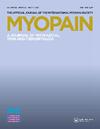Sleep Disturbance in Lumbar Spinal Stenosis
引用次数: 6
Abstract
Abstract Objectives: To determine the frequency of sleep disturbance in patients with lumbar spinal stenosis [LSS] and to reveal the relationship between the specific components of sleep disturbance and low back pain, physical disability, and psychological status in LSS. Methods: Thirty-six LSS patients [14 males and 22 females] and 30 age- and gender-matched healthy normal controls [13 males and 17 females] were enrolled in the study. Sleep disturbance was assessed using the Pittsburgh Sleep Quality Index [PSQI]. Pain was measured using a visual analog scale [VAS, 0–100 mm]. Psychological status and physical disability were assessed using the Hospital Anxiety and Depression Scale [HADS] and the Oswestry Disability Index [ODI]. Results: There were no significant differences between the LSS patients and the controls in terms of age or sex. The LSS patients had higher PSQI, HADS scores compared to the controls [p < 0.05]. Sleep disturbance [PSQI total score greater than 5] was positively correlated with VAS, HADS, and ODI [p < 0.05]. Conclusions: Sleep disturbance was associated with higher levels of pain, disability, depression, and anxiety. Sleep disturbance should be assessed when treating patients with LSS.腰椎管狭窄症的睡眠障碍
【摘要】目的:了解腰椎管狭窄症(LSS)患者睡眠障碍的发生频率,揭示睡眠障碍的具体组成与腰痛、身体残疾和心理状态的关系。方法:纳入36例LSS患者(男14例,女22例)和30例年龄、性别匹配的健康正常对照(男13例,女17例)。使用匹兹堡睡眠质量指数(PSQI)评估睡眠障碍。疼痛采用视觉模拟量表[VAS, 0-100 mm]测量。采用医院焦虑抑郁量表(HADS)和Oswestry残疾指数(ODI)对心理状态和身体残疾进行评估。结果:LSS患者与对照组在年龄、性别上无显著差异。LSS患者PSQI、HADS评分高于对照组[p < 0.05]。睡眠障碍[PSQI总分大于5分]与VAS、HADS、ODI呈正相关[p < 0.05]。结论:睡眠障碍与较高程度的疼痛、残疾、抑郁和焦虑有关。在治疗LSS患者时应评估睡眠障碍。
本文章由计算机程序翻译,如有差异,请以英文原文为准。
求助全文
约1分钟内获得全文
求助全文

 求助内容:
求助内容: 应助结果提醒方式:
应助结果提醒方式:


